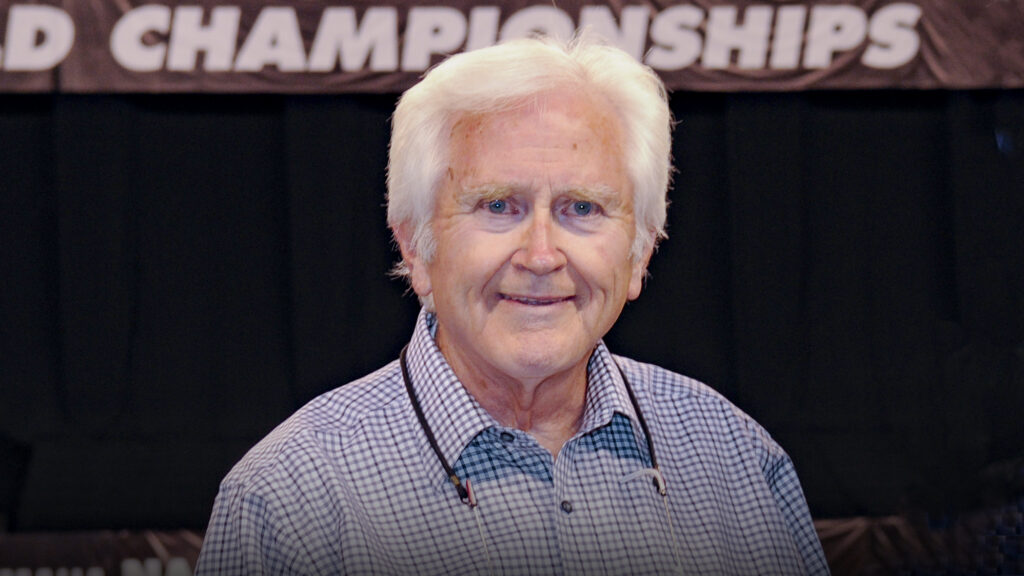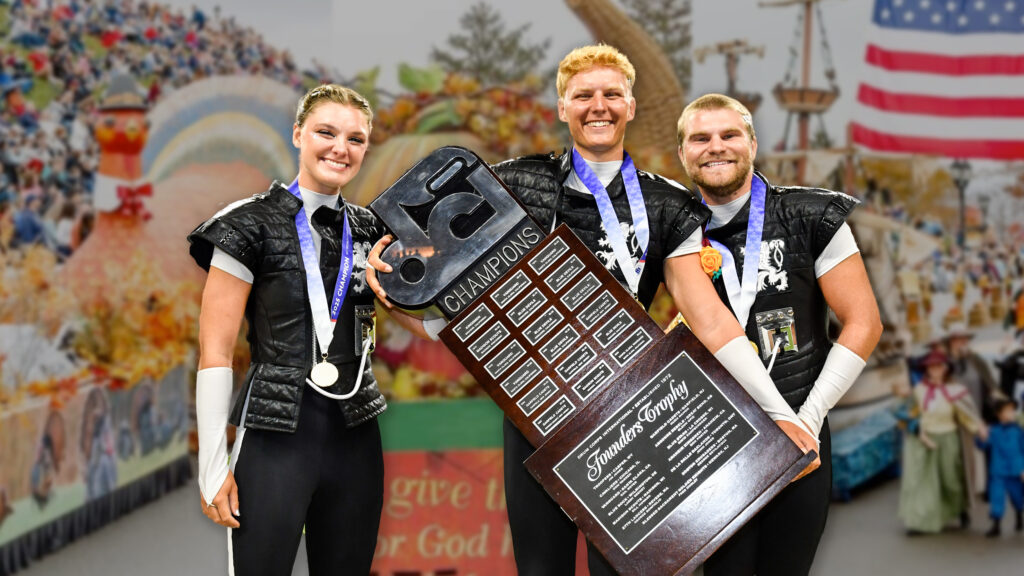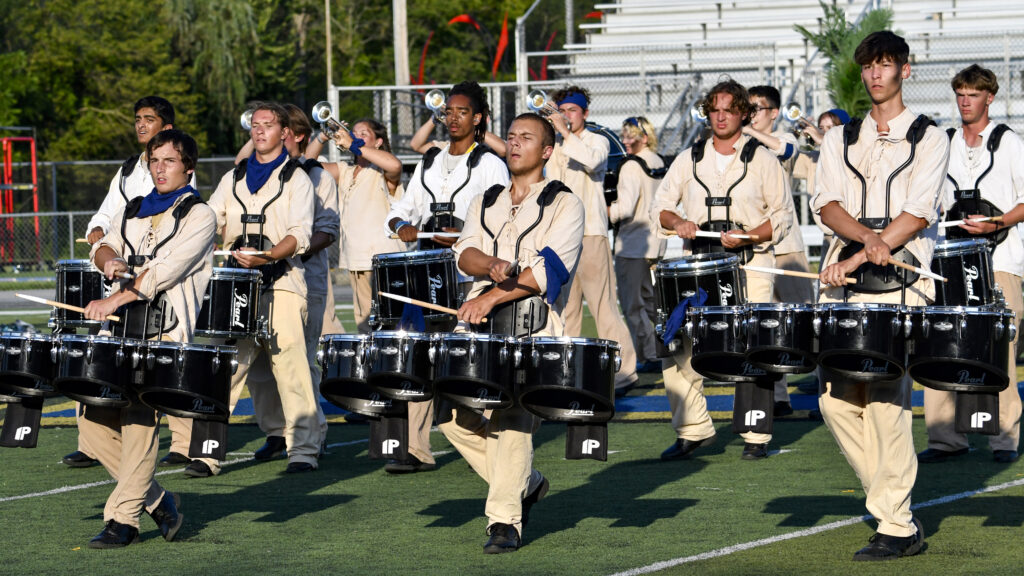
1997 Blue Knights
1997 Blue Knights performance excerpt.
The somewhat erudite and intellectual music of Barber fit in well with the image the corps was trying to cultivate as a thinking person’s drum corps. It required some thought from audience members for them to get in the groove, rewarding them only after an effort was made to listen deeply to the sonorous phrasings and cerebral melodic lines. Søren Kierkegaard is often thought of as the first existentialist to make an impact on the world of philosophical thought. His writings, full of angst and despair, held a certain appeal to Barber, and by extension could possibly have influenced some of the more recent shows by Blue Knights that explored the darker side of musical and human existence. “Father in Heaven” (from “Prayers of Kierkegaard”) featured minimal movement from the brass players, focusing on the stark and haunting simplicity of Barber’s introspective melody. Seven hand-painted banners, each well over 10 yards long, were pivoted into position on an oblique and set down on the field to become one huge illumination of light piercing the profoundness of existential existence. What came next was a deeply spiritual moment for many corps fans; a lone figure signifying the crucified Christ was passed over several color guard members and then laid down upon the rays of light, with the rest of the guard paying homage in silent affirmation. Musically and visually, this was a moment of spectacular beauty, one to which words truly can’t do justice. Turbulent strains from “The Battle” from “Ben-Hur” led into a final statement of the opening fanfare theme from the film, replacing all the prior torment and sorrow with a jubilant proclamation of hope and triumph. This week only, you can save on 1997 World Championship Audio and Video Performance Downloads on the DCI Fan Network. Buy the 1997 Blue Knights Video Performance Download. (Available this week only for $3.99. Regular price: $4.99.) Buy the Audio Performance Download bundle of all 12 Finalists from 1997. (Available this week only for $15.99. Regular price: $19.99.) Offer ends Monday, Nov. 21 at 8:30 a.m. ET.

Michael Boo was a member of the Cavaliers from 1975-1977. He has written about the drum corps activity for more than a quarter century and serves as a staff writer for various Drum Corps International projects. Boo has written for numerous other publications and has published an honors-winning book on the history of figure skating. As an accomplished composer, Boo holds a bachelor's degree in music education and a master's degree in music theory and composition. He resides in Chesterton, Ind.





